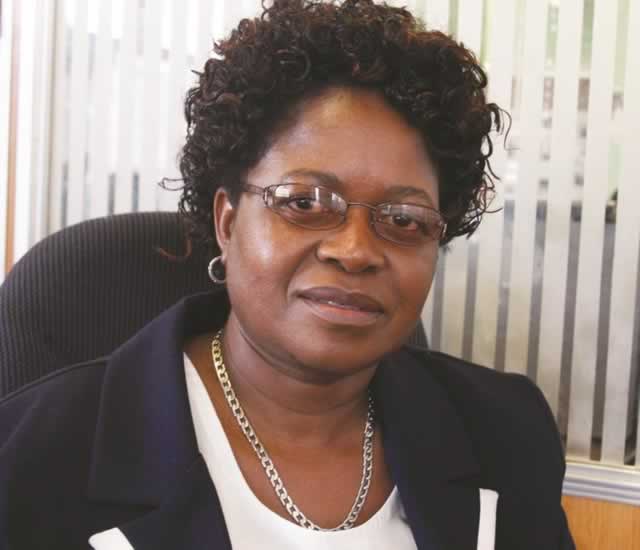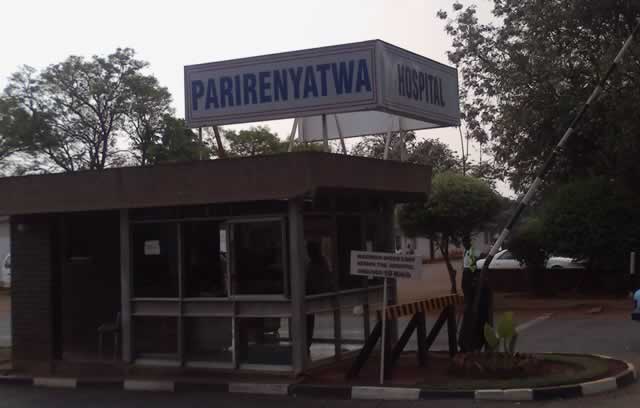Corruption, all in a day’s work

Lloyd Gumbo Mr Speaker Sir
Let’s stop institutionalising corruption if we are serious about developing this country.
Zimbabweans are sick and tired of being told how their money is being stolen or misused without action being taken against the perpetrators.
They are slowly losing faith in our country’s ability to curb corruption.
Looting in Government ministries, departments and State entities has continued unabated because we encourage it through our negative actions.
It would be mischievous to suggest that the recent “Salarygate” scam was a new phenomenon in Zimbabwe when it has gone on for a very long time.
Sadly, nothing has been done against the perpetrators.
Every year the Comptroller and Auditor-General’s Office, now Auditor-General’s Office, exposes corruption and misappropriation of funds by Government officials and those mandated to run State entities.
Audit reports are presented in Parliament, MPs kick, swear and scream while the media are saturated with stories from the reports, yet we still fall short on action.
University of Zimbabwe’s Tawanda Zinyama in the Journal article titled: “Efficiency and Effectiveness in Public Sector Auditing: An Evaluation of the Comptroller and Auditor-General’s Performance in Zimbabwe from 1999 to 2012” quotes the Kavran Report of 1989 stating that though the CAG was effective and efficient in discharging its constitutional mandates, it had no teeth to bite.
As a result, misappropriation and theft of public funds and assets have flourished because of the blatant rent-seeking actions of those entrusted with leading ministries, departments or parastatals knowing nothing will happen to them.
The State spends so much paying auditors to check if Government ministries, departments and State entities are spending money according to the book and more often than not the Auditor-General has unearthed massive irregularities.
Ministers, top civil servants and State entity heads have been implicated but it has remained business as usual.
The new Constitution has also failed to give the Auditor-General enforcement mechanisms on audit recommendations.
Parliament does not have the powers either, while the Executive, who are supposed to be the complainants, sometimes do not live up to expectation considering that ministers are the ones who appoint boards and often influence the appointment of management into parastatals despite their denial.
While the Constitution provides that all institutions and agencies of the State and Government at every level are accountable to Parliament, it is not enough for MPs to just know that public funds are being misappropriated while assets are being personalised yet no action is taken against offenders.
Let’s accept it, financial indiscipline has reached unparalleled levels in State entities to the extent that only radical action will burn the cancer.
Zinyama states that: “Parliament relies on the Public Auditor (Auditor-General) to provide independent assurance that Government activities are carried out and accounted for, consistent with Parliament’s intentions.”
It is out of such a background that we have the Auditor-General’s Office producing volumes, year in and year out, on how public funds would have been used or misused during the course of the year.
Let us be honest, at times the reports from the Office are so damning that you would mistake them for satanic verses and expect to see the “sinners” in the gallows the next minute.
But they are still breathing the same oxygen as victims if not better given their air-conditioned offices, homes and vehicles.
The Auditor-General’s Office is on record moaning that it has no “whip” to crack on Government officials and parastatal bosses implicated by the audits in the misappropriation of funds, embezzlement and other fraudulent activities.
We read of serious misuse of Government vehicles.
In some cases, vehicles vanish into thin air.
There is also rampant inflation of figures during tender processes and unbridled flouting of procurement procedures influenced by favouritism and brown envelopes.
The question that continuously boggles the mind is, does Parliament have teeth at all?
Is it not letting its electors down by debating these reports, only for them to gather dust in the shelves of Parliament?
The fact that every year Parliament receives damning reports from the Auditor-General’s Office through the Public Accounts Committee which subsequently debates and sometimes invites the parastatals and Government institutions involved for hearings, should be a first step towards accountability.
In some instances one realises some smokescreen approach to issues where officers involved are put on suspension with full benefits or at times “advised” to resign just to protect whoever is involved in the scam.
Kenya’s Dr Munene in the Hansard of November 23, 1972 had some strong points on the Public Accounts Committee, which should be instructive to our Public Accounts committees to this day.
“Mr Speaker Sir, I am glad to speak on this motion, especially at this particular time when Members of Parliament are currently debating the Public Accounts Committee of 1970/1971.
“Mr Speaker Sir, if there is any dog without teeth, it is this House and I think what was said by the British government can apply very well to this House. Without teeth, there is no use saying that you can bite. There is no use keeping a dog that cannot bite.
“Mr Speaker Sir, we definitely need this committee. It spends a lot of money, a lot of Honourable Members’ time interviewing all accounting officers. However, what happens after that is that the document it compiles becomes Government property locked up in the back doors of this House.
“This is unfair to this House and the public at large. I also think the accounting officers also laugh at us because they know that Members of the Public Accounts Committee are sensible but are made to do a useless job . . . We either abolish the committee or we give it teeth to bite,” Dr Munene said.
This was said in 1972 and aptly applies to our situation as if it only happened yesterday. Prophetic words indeed from Dr Munene.
We have vehicles disappearing in ministries without trace like the Malaysian plane MH370 while orders worth millions of dollars are made and paid for but no trace of delivery.
For instance, the CMED issue where almost US$7 million has been lost in a fuel scam currently under investigation by the Portfolio Committee on Transport and Infrastructural Development.
The electorate don’t care that parliamentarians do not have arresting powers.
All they know is that they are there to watchdog on their behalf and ensure that our money and resources are not personalised by greedy individuals who want to hide behind political connections.
Mr Speaker Sir, the House, the Public Accounts Committee, your committees, need teeth to bite and it is only you who can make the laws to ensure every cent is accounted for and that those who abuse public funds are dealt with decisively.
The Public Accounts Committee plays an important role in the oversight of public funds and should continuously be seen to be doing so.
Why do public officers with so much disdain reply to audit observations by saying “noted” when blatant cases of corrupt activities are evident in their work?
The mandate of this committee is to, as Robert Sheldom envisaged, “never to allow the taxpayer to get anything less than full value for the money that is spent on his behalf.”
Feedback: [email protected]










Comments